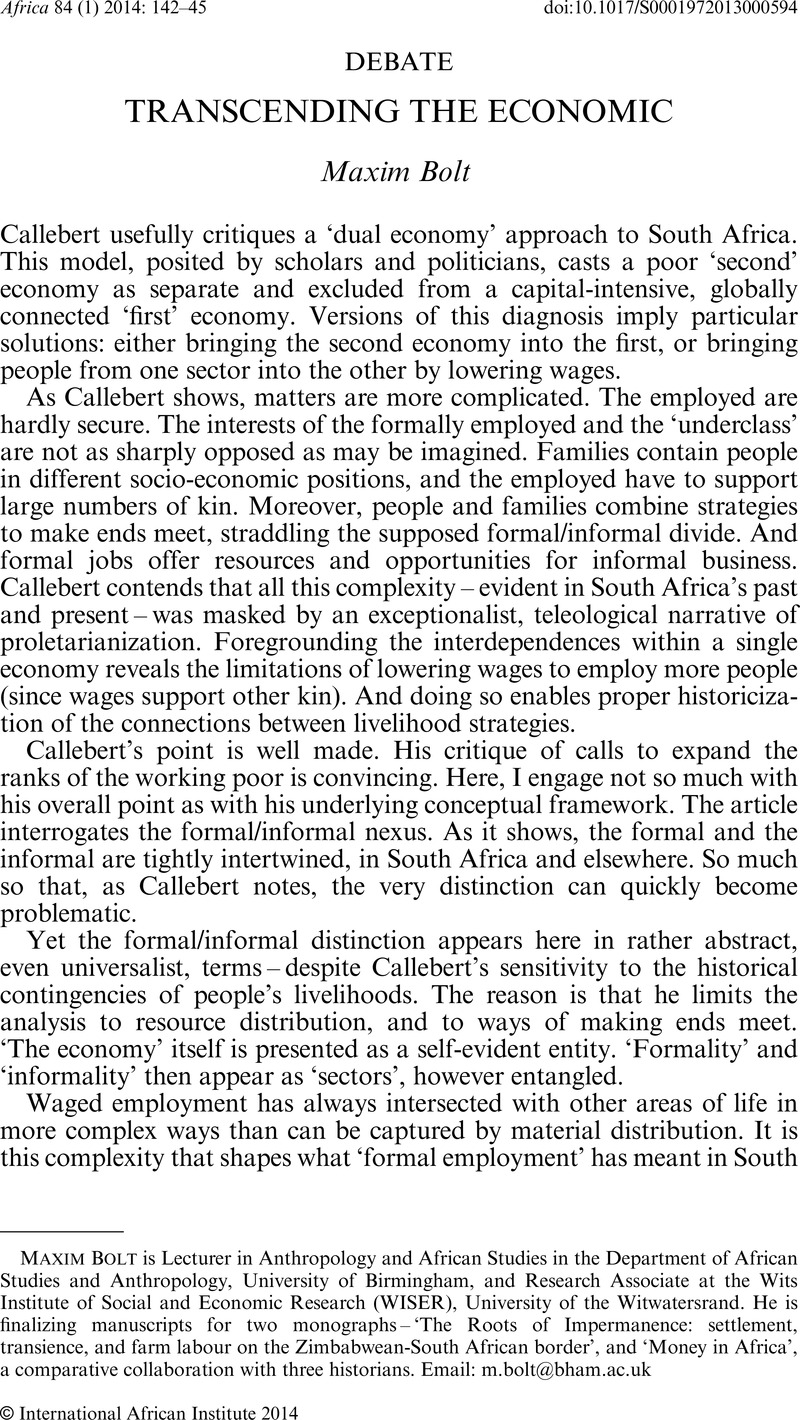Crossref Citations
This article has been cited by the following publications. This list is generated based on data provided by Crossref.
Salverda, Tijo
Lanzano, Cristiano
and
Wiegratz, Jörg
2024.
Moral economies of distribution and redistribution in Africa: the right and wrong of who gets (and gives) what and why.
Journal of Contemporary African Studies,
Vol. 42,
Issue. 2,
p.
125.



